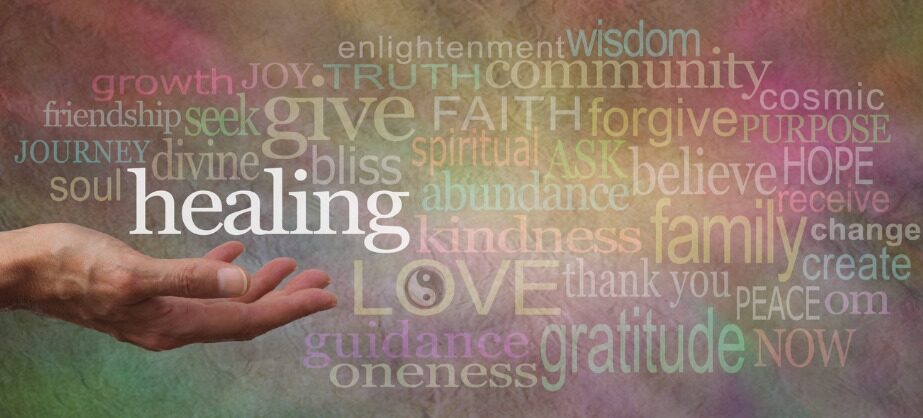In the world of counseling and psychotherapy, we are often seeking ways to help clients develop their own “resources” to deal with life’s challenges. If they are struggling with some kind of pain or difficulty, so we may support them in exploring their inner and outer sources of strength and comfort, and help them develop new or more effective ways to cope. This might include identifying cognitive patterns that keep them stuck, and discovering alternative thinking pathways that open up new possibilities. We may share self-calming resources, quieting-the-mind resources, practices of giving more attention to positive experiences, new imagery and experiences that give them the felt sense of being cared for or kept safe. There is also significant value in helping them connect with others in relationship and community.
Spirituality and Religion: Overlooked Resources
If a client’s faith or spiritual orientation has meaning for her, this may be a natural source of comfort, strength, hope, or guidance. Many helping professionals are reluctant to open this door for fear that they will stumble into the territory of strongly held beliefs that they don’t know how to navigate– or strongly disagree with. But such avoidance may mean they are missing valuable possibilities.
Opening the door to this exploration begins with giving clients a chance to share what matters deeply to them, and also listening very carefully for subtle hints that come spontaneously. It can set the stage if we include some basic questions as part of an intake process, either in writing or in conversation. What meaning, if any, does spirituality/religion/faith have for you? Would you be willing to share more about this? What role would you like this to play in our work together, if any? But beyond an initial inquiry, But spirituality and religion is sometimes closely guarded territory. Clients may not be sure it is really welcome in counseling/therapy. They may, consciously or unconsciously, drop hints to see if we are really open, paying attention, and willing to invite more. They need to feel safe to share what is close to the heart, to identity, and ultimate meaning.
“I pray this doesn’t get any worse.” “I will get through this, God willing.” “Sometimes I wish I could just fall asleep in the arms of an angel.” “My faith is what gets me through.” “Spending time in nature is my church.” “I find myself longing for the old comfort of family gatherings after church/ for the Sabbath.” “Meditation connects me with something deeply peaceful.”
Beyond Resourcing
There is so much we may need to learn about these possibilities for “resourcing” that I hesitate to add this additional comment, but it calls for attention: if we limit spirituality/religion/faith to a resourcing role, we are only seeing part of the potential meaning. This brings to mind the growing conversation about “resilience” in the field of trauma: we need to realize that sometimes people are not only able to survive, but to grow. Deep grief and suffering can stop people in their tracks, for a time, or even permanently. Yet others manage to find their way back to a livable life. And some even find a more meaningful life unfolding, in which they speak of feeling more loving and patient, more connected to others and to the world, more intent on giving than receiving. They may speak openly about spirituality or faith, as deeper or new dimensions of their lives. If we recognize these possibilities, we may be able to support and encourage this path of growth.
Self-actualization
Abraham Maslow spoke about self-actualization as the apex of growth in his hierarchy of needs. But he later came to a realization that beyond self-actualization, there is the potential for self-transcendence. Non-Western cultures do not typically emphasize self-actualization as much, or perhaps place it lower on the hierarchy – with “community-actualization” above it. In other words, we develop the potential of the individual in order to serve community/society/world. This is one form of self-transcendence, and there is more.
Self-Transcendence
Some religious/spiritual traditions point beyond even this to the possibility of transcending the individual self and directly experiencing/knowing the Divine/Beloved, the Mystery, the Ground of Being/Unity of All that is. These forms of transcendence may sound way out of reach. Even self-actualization may seem far beyond the capacity of most of our clients who are struggling with their personal pain, relationships, work, daily life. But one never knows. Tastes of self-transcendence sometimes present themselves, unsolicited. The faithful may call this grace. And if we realize the full scope of possibilities in our work, we may be more prepared to appreciate the signs of “deep growth” when they appear in a client’s life. Perhaps we will sometimes have the privilege of sharing their amazement and gratitude.
What if…?
What if we open ourselves to the possibilities for spirituality/religion/faith to serve as a resource, and develop skillful, open-hearted ways of working with clients in this territory? And what if we also consider the possibility that this dimension of human life may generate and support growth and transformation? Surely growth is not only the territory of the positive psychologists? Sometimes it just unfolds … will we be able to recognize and encourage far-reaching growth that has a spiritual flavor or a religious fragrance?
Note: There is more to be said about the challenges of “spiritual bypassing,” but I will leave that for another time.

